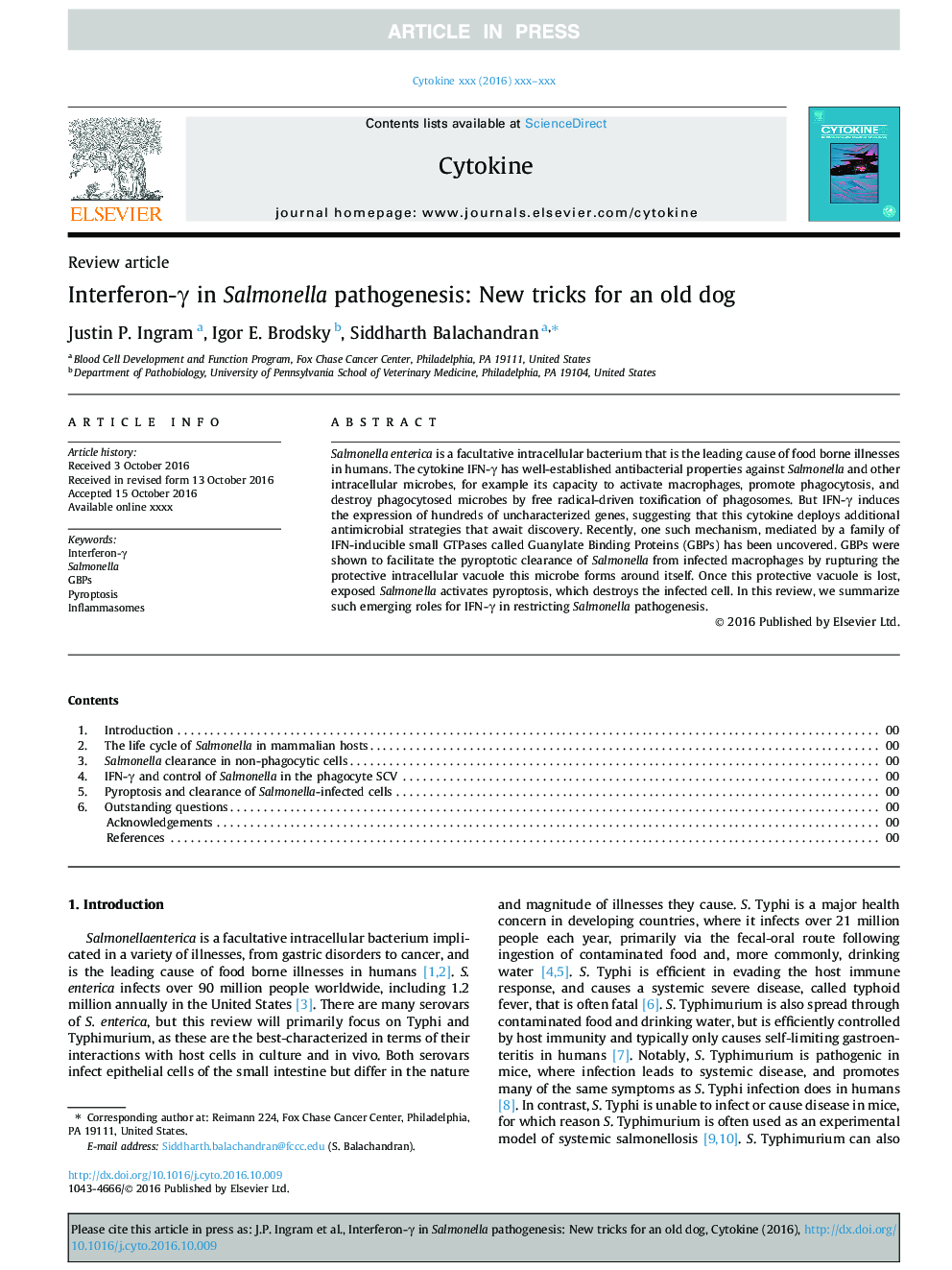| Article ID | Journal | Published Year | Pages | File Type |
|---|---|---|---|---|
| 5586910 | Cytokine | 2017 | 6 Pages |
Abstract
Salmonella enterica is a facultative intracellular bacterium that is the leading cause of food borne illnesses in humans. The cytokine IFN-γ has well-established antibacterial properties against Salmonella and other intracellular microbes, for example its capacity to activate macrophages, promote phagocytosis, and destroy phagocytosed microbes by free radical-driven toxification of phagosomes. But IFN-γ induces the expression of hundreds of uncharacterized genes, suggesting that this cytokine deploys additional antimicrobial strategies that await discovery. Recently, one such mechanism, mediated by a family of IFN-inducible small GTPases called Guanylate Binding Proteins (GBPs) has been uncovered. GBPs were shown to facilitate the pyroptotic clearance of Salmonella from infected macrophages by rupturing the protective intracellular vacuole this microbe forms around itself. Once this protective vacuole is lost, exposed Salmonella activates pyroptosis, which destroys the infected cell. In this review, we summarize such emerging roles for IFN-γ in restricting Salmonella pathogenesis.
Related Topics
Life Sciences
Biochemistry, Genetics and Molecular Biology
Endocrinology
Authors
Justin P. Ingram, Igor E. Brodsky, Siddharth Balachandran,
